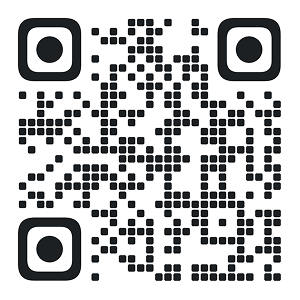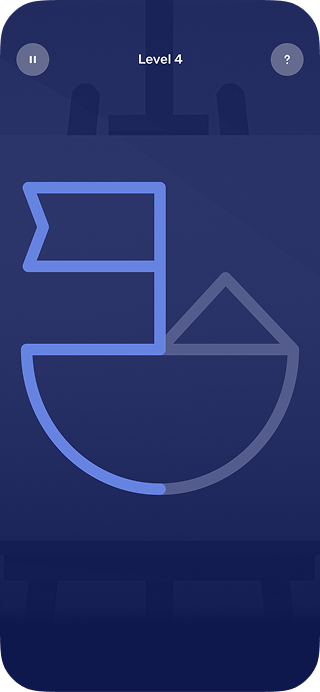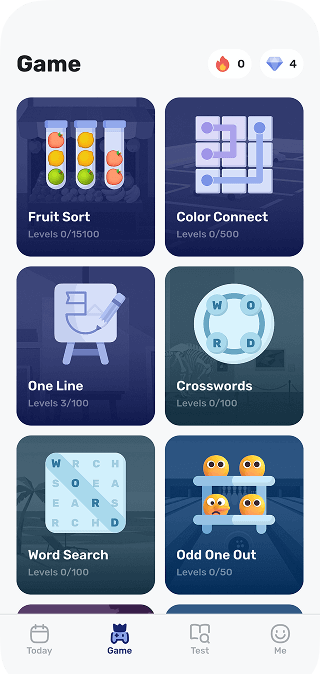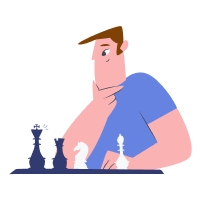How To Do a Digital Detox
Ron Spinabella Chief Editor / Oct 13, 2025
When was the last time you were completely immersed in a book and read it with all your heart? Have you ever had such an experience? The more you watch short videos on your mobile phone, the more addicted you become. Your patience is getting less and less, but your anxiety is getting more and more. Your sleep quality is declining, your cognitive ability is weakened, your memory is declining, your emotional regulation is difficult, and even your judgment and creativity are affected.

In the wave of the digital age, we are all deeply involved in a virtual world composed of data, information and screens. We spend a lot of time every day swiping the screen on our mobile phones, typing on the keyboard on our computers, constantly receiving and sending information, as if this is all there is to life. However, this over-reliance on digital devices is quietly changing our lifestyle and even affecting our physical and mental health. This is what we need to pay attention to and explore - digital detox.
How Much Time Do We Spend Online
The average American spends 12 hours and 36 minutes in front of a screen every day, and Reviews.org says smartphones take up more than three hours of our time every day. According to a 2022 Gallup poll, 83% of American adults said they keep their smartphones with them almost all the time when they are awake, and 64% admitted that they check their smartphones when they wake up in the morning. Everyone is becoming more and more dependent on their phones.
What Is Digital Detox
Digital detox, in simple terms, is to temporarily give up or reduce the use of digital devices. It is not just a simple behavioral change, but also an adjustment of lifestyle. When we choose to detox digitally, we are actually seeking a balance, a balance between the digital world and the real world. We try to get back the time occupied by digital devices, pay attention to the people and things around us, and experience the reality and beauty of life.

Digital detox does not mean that we should completely abandon digital devices, but learn to use them reasonably. After all, in this era of highly developed digitalization, digital devices have become a part of our lives, and they provide us with countless conveniences and fun. However, when we rely too much on these devices, we may lose the perception and experience of real life, and may even fall into a state of "digital addiction".
Why Do You Need a Digital Detox
Sleep disorders: Think about it, when you lie in bed at night and turn off the lights, is the light from your phone screen particularly dazzling? The blue light emitted by the phone is like a naughty little devil, specifically going against our sleep rhythm. The American Academy of Sleep Medicine recommends turning off screens (mobile phones, tablets, TVs and laptops) at least an hour before your usual bedtime.
Decreased vision: Look at our eyes again. Staring at the phone screen for a long time is like a spring that has been stretched tight. Sooner or later, it will lose its elasticity. The high-energy short-wave blue light emitted by the phone screen can damage the retina of the eye and accelerate retinal aging.
Lack of exercise: In the past, people would go out for a walk or swim in their spare time. But now, many people are addicted to the world of mobile phones, and the time for outdoor activities and physical exercise has been greatly reduced. For every additional hour of mobile phone use per day, the chance of becoming an "active couch potato" will increase by 11.4%.
7 Signs You May Need a Digital Detox
- You feel anxious or stressed if you can’t find your phone.
- You feel like you have to check your phone every few minutes.
- You feel frustrated, anxious, or angry after spending time on social media.
- You focus on the number of likes, comments, or shares on your social posts.
- You worry you’ll miss something if you don’t check your device frequently.
- You often find yourself staying up late or waking up early to use your phone.
- You have a hard time focusing on one task without checking your phone.
How to Do a Digital Detox? 10 Tips
Some people may think that a true digital detox should include a preemptive ban on all digital devices and social media connections. But it is important to make your device usage suitable for your life and needs. Digital detox does not necessarily mean completely staying away from mobile phones and other technological devices.
1. Find Someone to Supervise
Before talking about finding someone to supervise, let’s talk about self-monitoring. This is actually difficult to achieve because most people don’t realize that they are distracted when their attention is drawn to their mobile phones, so finding someone to monitor seems to be a good way.
2. Look for an Alternative
Many times, we are obsessed with mobile phones just because we are empty inside and have not found something we love. Find something you love to replace your mobile phone and spend your time on more meaningful things. If you don’t have anything interesting now, cultivate it. Sports, reading, writing, painting are all fine. You can always find a passion.
3. Turn off APP Message Notifications
We are always attracted to some software message pop-ups and click in. After reading them, we find that they are all meaningless content and time is wasted. Therefore, turn off message notifications directly to block external interference from the dissemination of information.
4. Write a To-do List
Keep writing a to-do list every day and plan your daily tasks. When you want to play with your phone, look at the unfinished tasks and force yourself to strictly implement them until they are all completed.
5. Physical Isolation Method
Lock your phone in a drawer or put it in another room to increase the threshold for use. Don't bring a charger when you go out, force yourself to charge only once a day, and use power anxiety to force you to reduce the use time.
6. Uninstall Software
Uninstall all non-essential software and only keep communication applications. Set the screen homepage to a blank page, hide the addictive apps in the third-level folder and name them "waste time". Turn on the grayscale mode of the phone to make the screen lose its color appeal and reduce the desire to open it.
7. Offline Social Interaction
Encourage face-to-face communication and strengthen connections with family and friends. Establish more offline connections with friends. Participating in community activities, volunteer work or organizing gatherings can help you reduce your dependence on mobile phones.
8. Read Paper Books
Reading paper books not only allows you to focus on the content itself, but also effectively reduces the time you are exposed to the screen. More importantly, the touch and smell of turning pages often bring a unique sense of satisfaction.
9. Set Limits
Set a time limit for using your phone every day, such as no longer using your phone after 9 pm every day. Gradually reduce the time of use until you find a balance that suits you. Research in the Journal of Experimental Psychology shows that limiting social media use to about 30 minutes a day can significantly improve happiness and reduce loneliness and depression symptoms.
10. Record Changes
Keep a diary to track your progress and regularly reflect on how your phone use has positively or negatively affected your life. This will help you clarify your goals and take corresponding actions.
Young Women and Smartphone Addiction
A research team from the University of Toronto in Canada surveyed thousands of people in nearly 200 countries on the risks of using mobile phones and came to an unexpected conclusion: young women are the largest group of smartphone addicts (about 56% meet the criteria for mobile phone addiction).

Women are more likely to become addicted to mobile phones than men because they need to communicate and manage social relationships, and use their phones more frequently than men.
Final Thoughts
Being disconnected from your devices can sometimes feel uncomfortable and stressful. Without your phone and other tech, you may feel annoyed, anxious, or even bored. While it can be challenging, a digital detox can be a beneficial endeavor that helps you better understand your relationship with your devices and become more mindful and attentive in your other activities and experiences.
Disclaimer
Any assessments and their associated content on this website, regardless of date, are not intended to replace direct medical advice from your physician or other professional. If you experience severe or persistent symptoms, please consult a licensed mental health professional or healthcare provider.












